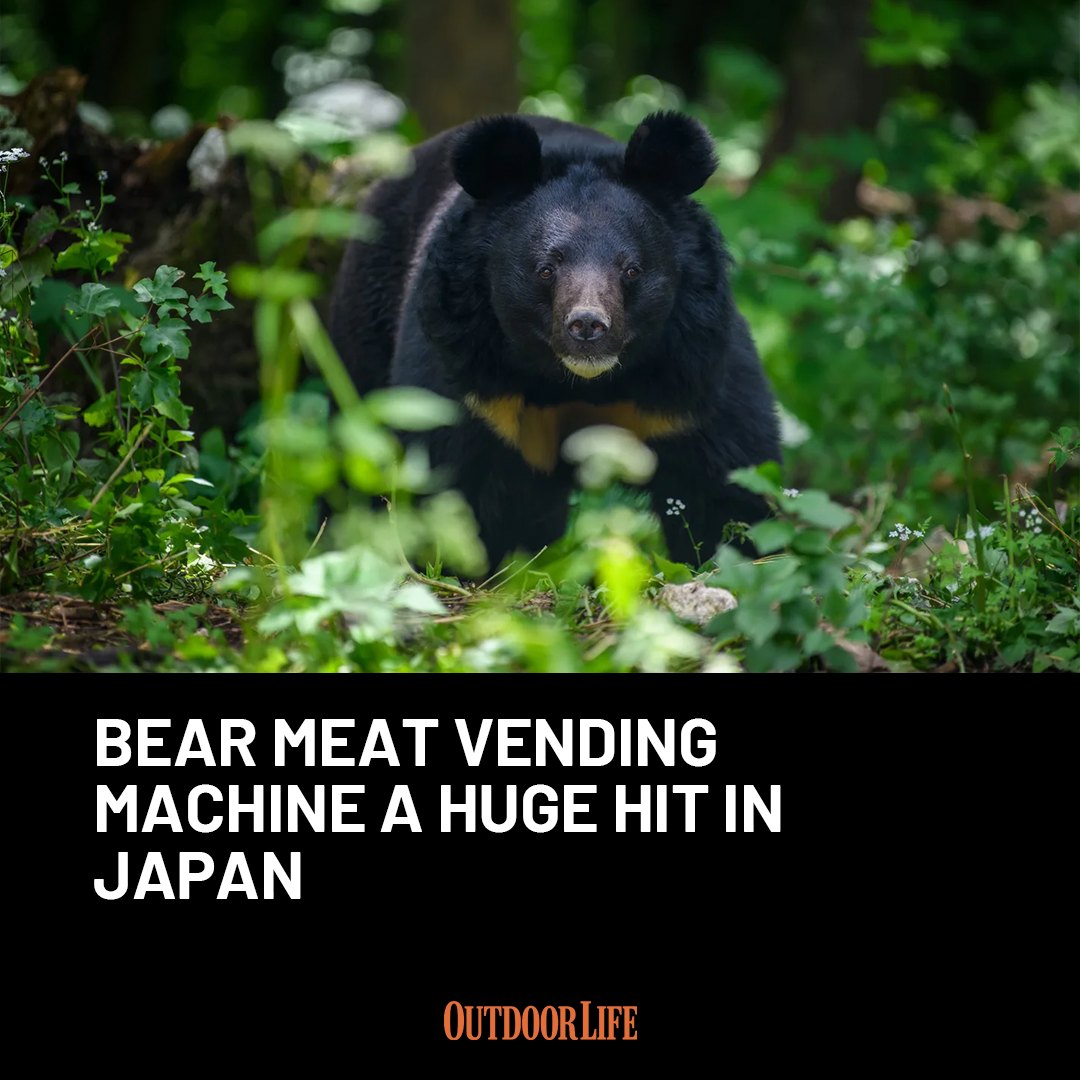“On average, the machine sells 10 to 15 packs a week,” the Japanese newspaper reports. “But supplies sometimes run out because the bear hunting season is limited.”
Last November, local restaurant Soba Goro installed the bear meat vending machine near the JR Tazawako train station in Semboku, Akita. Residents of northern Japan lead the nation in bear meat consumption, according to The Guardian, and the restauranteurs were looking to promote the unique protein source as a tourist attraction. Most buyers have been commuters on the bullet train. But the machine’s operators also get calls for mail-in orders from people in Tokyo.
The refrigerated vending machine is open 24 hours a day. It contains local beef in addition to the local black bear meat. Both are processed in a slaughterhouse. The beef costs 3,000 yen (or roughly $23) for a 200-gram portion. The bear meat sells for 2,200 yen (or roughly $17) per 250-gram portion.
Read Next: How to Eat a Spring Black Bear
Black Bear Hunting in Japan
The mountains of northern Japan are home to a healthy (and huntable) population of Asiatic black bears, which are estimated at 15,000 to 20,000 strong. (Japan’s northern island, Hokkaido, is also home to a small and protected population of brown bears.) The Japanese government encourages the sustainable harvest of black bears. Asiatic black bears are more aggressive than American black bears, and conflicts with humans have recently gone up in Japan.
2020 saw a record-high number of conflicts, with two people killed and another 140 injured by bears, according to Japan’s Ministry of the Environment. The Ministry estimates that hunters and local authorities culled more than 5,000 black bears that year. They harvested roughly 4,500 bears in 2021.
